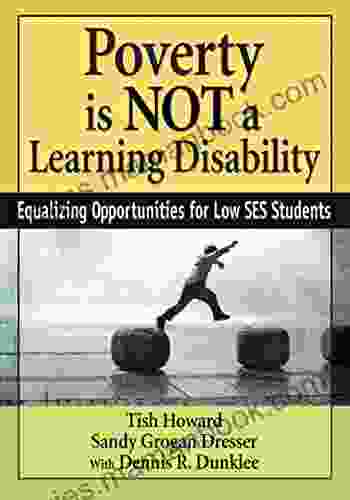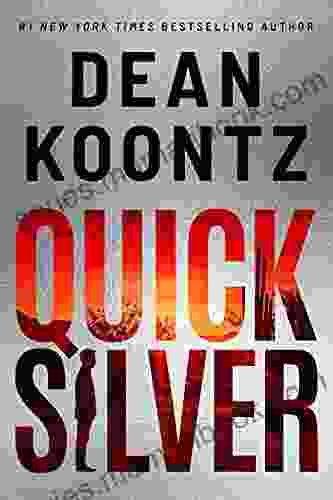Poverty Is Not a Learning Disability: Tackling the Root Causes of Educational Disparities

4.5 out of 5
| Language | : | English |
| File size | : | 3609 KB |
| Text-to-Speech | : | Enabled |
| Enhanced typesetting | : | Enabled |
| Word Wise | : | Enabled |
| Print length | : | 162 pages |
| Lending | : | Enabled |
| Screen Reader | : | Supported |
| Hardcover | : | 180 pages |
| Item Weight | : | 1.05 pounds |
| Dimensions | : | 6.5 x 0.75 x 9.75 inches |
The debate over whether poverty is a learning disability has been ongoing for decades. Some argue that the challenges faced by students from low-income families are so pervasive and debilitating that they constitute a disability. Others maintain that poverty is a complex social and economic condition that does not preclude students from achieving academic success. This article explores this complex relationship, highlighting the need to address root causes of educational disparities rather than labeling students in poverty as disabled.
The Research: Poverty's Impact on Cognitive Development
Research has shown that poverty can have a significant impact on cognitive development, especially in early childhood. Children living in poverty are more likely to experience chronic stress, which can disrupt brain development and negatively affect attention, memory, and executive function. Additionally, poverty-related factors such as poor nutrition, inadequate housing, and limited access to healthcare can also contribute to cognitive impairments.
For example, a study by the Center on the Developing Child at Harvard University found that children from low-income families have lower levels of cognitive development in areas such as language, math, and problem-solving compared to their wealthier peers. This gap persists even after controlling for factors such as race, ethnicity, and parental education.
The Problem with Labeling Poverty as a Disability
While poverty clearly can have a negative impact on learning, labeling students in poverty as disabled is problematic for several reasons. First, it can lead to a deficit-based view of these students, focusing on their limitations rather than their strengths. This can have a negative impact on their self-esteem and motivation to learn.
Second, labeling students in poverty as disabled can create a self-fulfilling prophecy. If students believe that they are unable to learn, they may be less likely to put forth effort in school. This can lead to a cycle of failure and low expectations that can be difficult to break.
Finally, labeling poverty as a disability can divert attention from the underlying social and economic factors that contribute to educational disparities. By focusing on individual students rather than systemic issues, we may fail to address the root causes of the problem.
Addressing Root Causes of Educational Disparities
To truly address educational disparities, we need to focus on addressing the root causes of poverty. This includes expanding access to quality early childhood education, providing adequate nutrition and housing, and improving healthcare and mental health services for low-income families. We also need to ensure that schools are safe, supportive, and culturally responsive.
Some specific strategies that can be implemented include:
- Investing in early childhood education programs that provide high-quality care and education to children from all backgrounds.
- Providing financial assistance to low-income families so that they can afford basic necessities such as food, housing, and healthcare.
- Expanding access to healthcare and mental health services for low-income families, including services that address the impact of trauma.
- Creating safe and supportive school environments that are free from bullying, discrimination, and violence.
- Implementing culturally responsive teaching practices that value the diversity of students' experiences and cultural backgrounds.
Poverty is a complex and multifaceted issue that can have a significant impact on learning. However, it is important to remember that poverty is not a learning disability. By addressing the root causes of educational disparities, we can create a more equitable learning environment for all students, regardless of their socioeconomic status.
We need to move beyond a deficit-based view of students in poverty and recognize their strengths and potential. By providing them with the support they need to succeed, we can help them overcome the challenges they face and achieve their full potential.
4.5 out of 5
| Language | : | English |
| File size | : | 3609 KB |
| Text-to-Speech | : | Enabled |
| Enhanced typesetting | : | Enabled |
| Word Wise | : | Enabled |
| Print length | : | 162 pages |
| Lending | : | Enabled |
| Screen Reader | : | Supported |
| Hardcover | : | 180 pages |
| Item Weight | : | 1.05 pounds |
| Dimensions | : | 6.5 x 0.75 x 9.75 inches |
Do you want to contribute by writing guest posts on this blog?
Please contact us and send us a resume of previous articles that you have written.
 Top Book
Top Book Novel
Novel Fiction
Fiction Nonfiction
Nonfiction Literature
Literature Paperback
Paperback Hardcover
Hardcover E-book
E-book Audiobook
Audiobook Bestseller
Bestseller Classic
Classic Mystery
Mystery Thriller
Thriller Romance
Romance Fantasy
Fantasy Science Fiction
Science Fiction Biography
Biography Memoir
Memoir Autobiography
Autobiography Poetry
Poetry Drama
Drama Historical Fiction
Historical Fiction Self-help
Self-help Young Adult
Young Adult Childrens Books
Childrens Books Graphic Novel
Graphic Novel Anthology
Anthology Series
Series Encyclopedia
Encyclopedia Reference
Reference Guidebook
Guidebook Textbook
Textbook Workbook
Workbook Journal
Journal Diary
Diary Manuscript
Manuscript Folio
Folio Pulp Fiction
Pulp Fiction Short Stories
Short Stories Fairy Tales
Fairy Tales Fables
Fables Mythology
Mythology Philosophy
Philosophy Religion
Religion Spirituality
Spirituality Essays
Essays Critique
Critique Commentary
Commentary Glossary
Glossary Bibliography
Bibliography Index
Index Table of Contents
Table of Contents Preface
Preface Introduction
Introduction Foreword
Foreword Afterword
Afterword Appendices
Appendices Annotations
Annotations Footnotes
Footnotes Epilogue
Epilogue Prologue
Prologue Tory Richards
Tory Richards Rose Mannering
Rose Mannering Alice Blanchard
Alice Blanchard Jane Nelsen
Jane Nelsen Dennis Carstens
Dennis Carstens Catherine Fisher
Catherine Fisher Sven Beckert
Sven Beckert Jane Hirshfield
Jane Hirshfield Paul Durcan
Paul Durcan Philip Butterworth
Philip Butterworth Dawn Brookes
Dawn Brookes Charisse Piros
Charisse Piros Raes Calvert
Raes Calvert Ross Leckie
Ross Leckie Thomas H P Gould
Thomas H P Gould Leonard A Batterson
Leonard A Batterson Joshua Kurlantzick
Joshua Kurlantzick Frank Smith
Frank Smith John Muir
John Muir Susan Orlean
Susan Orlean
Light bulbAdvertise smarter! Our strategic ad space ensures maximum exposure. Reserve your spot today!

 Russell MitchellThe Rise of India and China: A Transformative Force Shaping the Global...
Russell MitchellThe Rise of India and China: A Transformative Force Shaping the Global... Gerald ParkerFollow ·16.9k
Gerald ParkerFollow ·16.9k Oscar WildeFollow ·17.2k
Oscar WildeFollow ·17.2k Carson BlairFollow ·5.1k
Carson BlairFollow ·5.1k Dale MitchellFollow ·5.2k
Dale MitchellFollow ·5.2k Allen GinsbergFollow ·7k
Allen GinsbergFollow ·7k Kevin TurnerFollow ·16.5k
Kevin TurnerFollow ·16.5k John GreenFollow ·18.9k
John GreenFollow ·18.9k Max TurnerFollow ·4.7k
Max TurnerFollow ·4.7k

 David Mitchell
David MitchellMy Surly Heart: Poetic Expressions of Unrequited Love...
In the annals of...

 Jake Carter
Jake CarterBleach Vol. 50: The Six Fullbringers - A Comprehensive...
Bleach Vol. 50, titled "The Six...

 Edward Reed
Edward ReedThe Art of Simple Food II: A Masterclass in Culinary...
In an era of culinary excess, where meals...

 Jarrett Blair
Jarrett BlairThe Easy Ingredient Ketogenic Diet Cookbook: Your Gateway...
The ketogenic diet,...

 Larry Reed
Larry ReedThe Very Edge Poems Polly Alice Mccann: A Poetic...
An to 'The Very...

 Sidney Cox
Sidney CoxThe Keys of Death and Hades: Unlocking the Epic of...
In the realm of mythology...
4.5 out of 5
| Language | : | English |
| File size | : | 3609 KB |
| Text-to-Speech | : | Enabled |
| Enhanced typesetting | : | Enabled |
| Word Wise | : | Enabled |
| Print length | : | 162 pages |
| Lending | : | Enabled |
| Screen Reader | : | Supported |
| Hardcover | : | 180 pages |
| Item Weight | : | 1.05 pounds |
| Dimensions | : | 6.5 x 0.75 x 9.75 inches |










